Hi, I’m Michelle. I’m a second-generation Japanese and Chinese American who spent the last seven years traveling to every continent across over 60 countries.
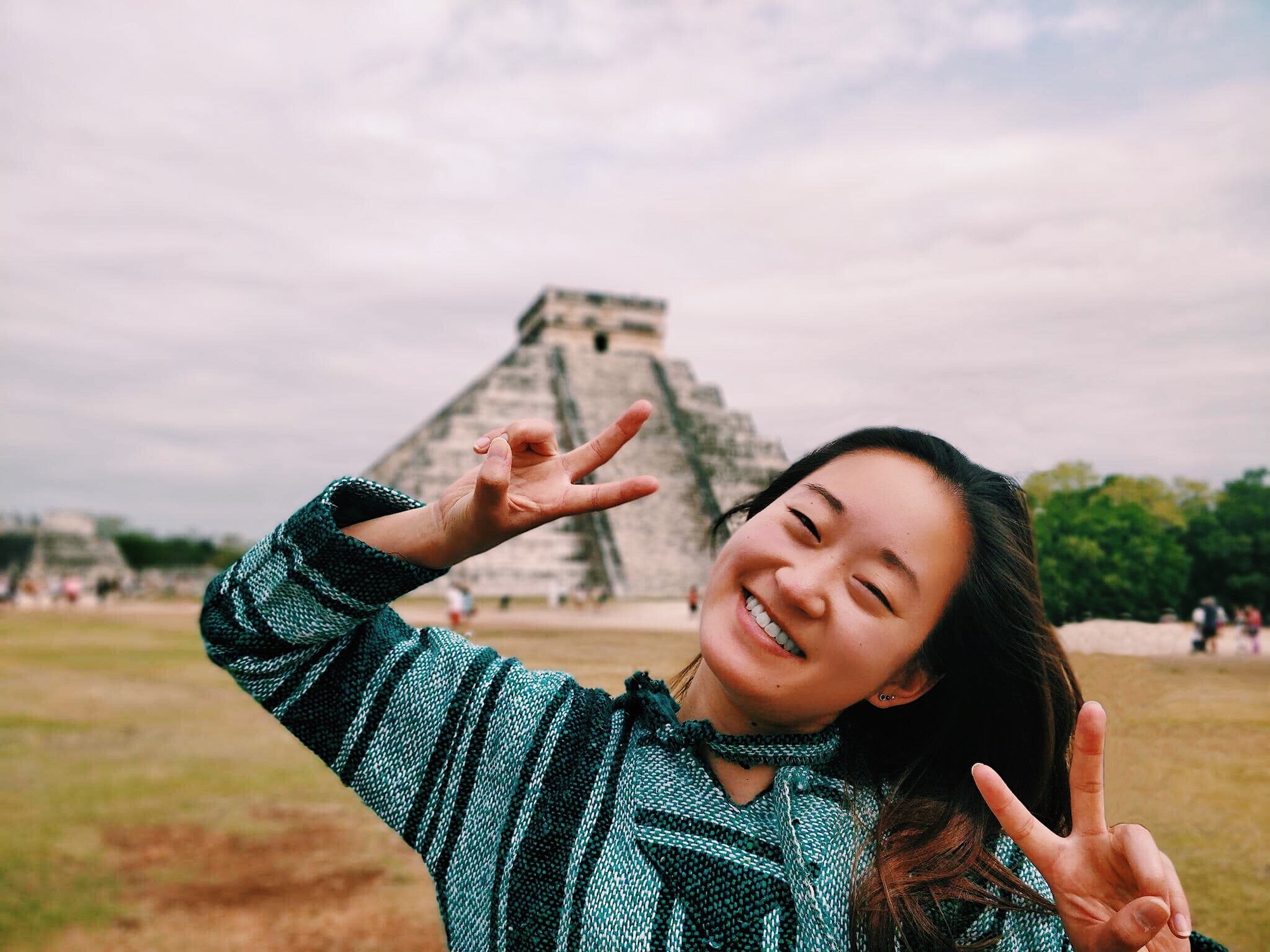
Like many multi-cultural people, I’ve spent the majority of my life in constant cultural confusion: not American enough, not Asian enough, not Japanese enough, not Chinese enough, etc.
Traveling while Asian American, or going abroad as an Asian traveler in general, only stirs things up more.
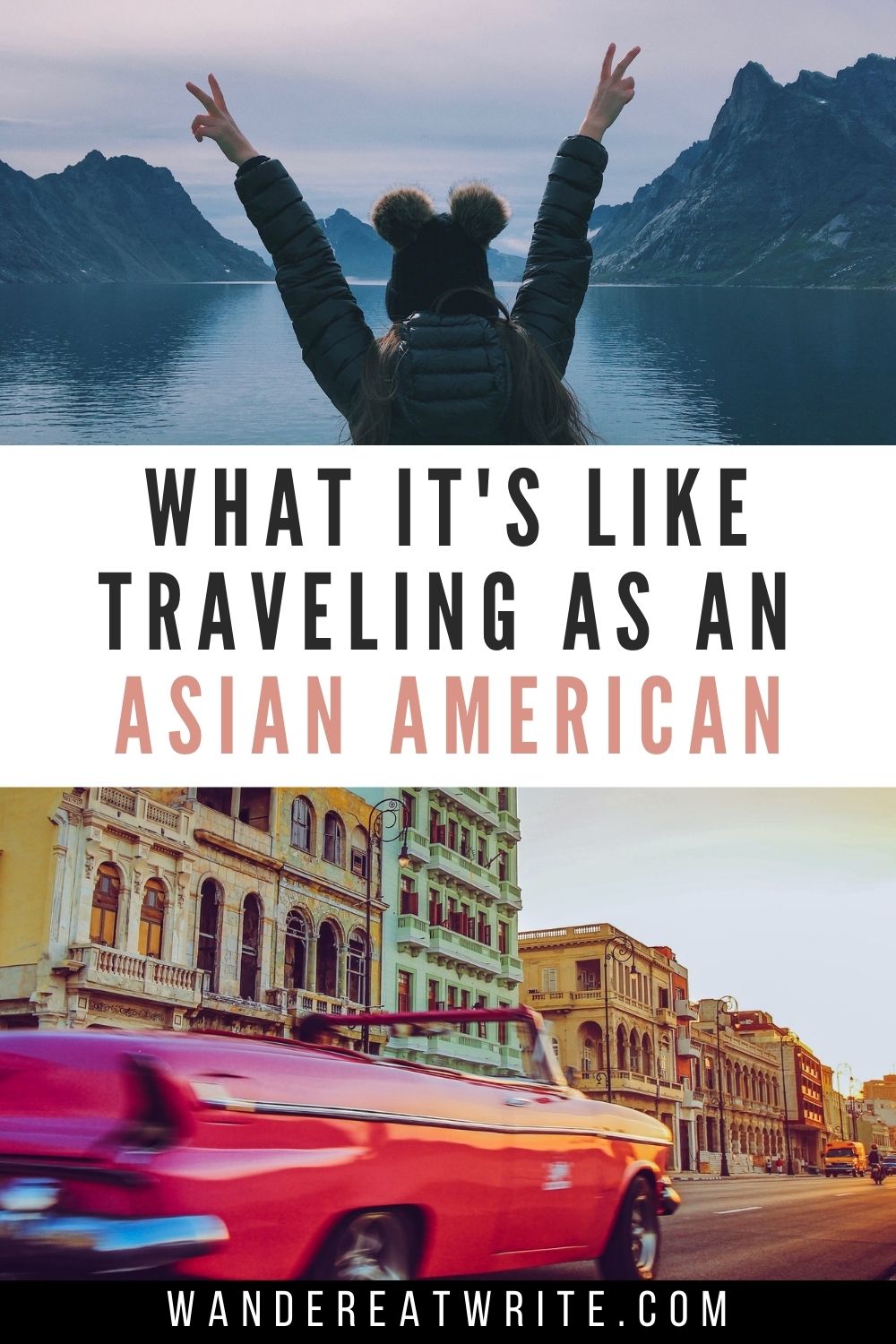
In both the U.S. and overseas, people have refused to accept that I’m an American citizen.
I’ve gotten it all: told to go back from where I came from, “complimented” that my English is so good, criticized for my lack of Japanese/Chinese language skills– the list goes on.
My experience of constantly being seen as a perpetual foreigner is one that many Asians know too well.
The lesson I’ve come to learn from traveling as an Asian American is that there’s no winning.
But however frustrating constantly dealing with microaggressions, stereotyping, and unfair treatment can be in the moment to experience, they do make for great stories later!
No pain, no gain– am I right?
So strap in for an anecdotal Yelp review hybrid of sorts around the world as I recount all the hilarious stories of cultural confusion and upsetting moments of discrimination to just plain insensitive behavior that have culminated from my journey across this tragically beautiful planet.
Obligatory preface: these are just my own personal experiences and are not meant to be representative of all Asians’ experiences. Because that would be dumb and there are literally billions of us.
[joli-toc]
The Two Most Frequently Asked Questions I Get– And Absolutely Hate
Before I dive into my stories of adventures and misadventures, it’s probably best if I address the two most common questions I’ve gotten asked in my entire lifetime no matter the city, country, or continent I’m in.
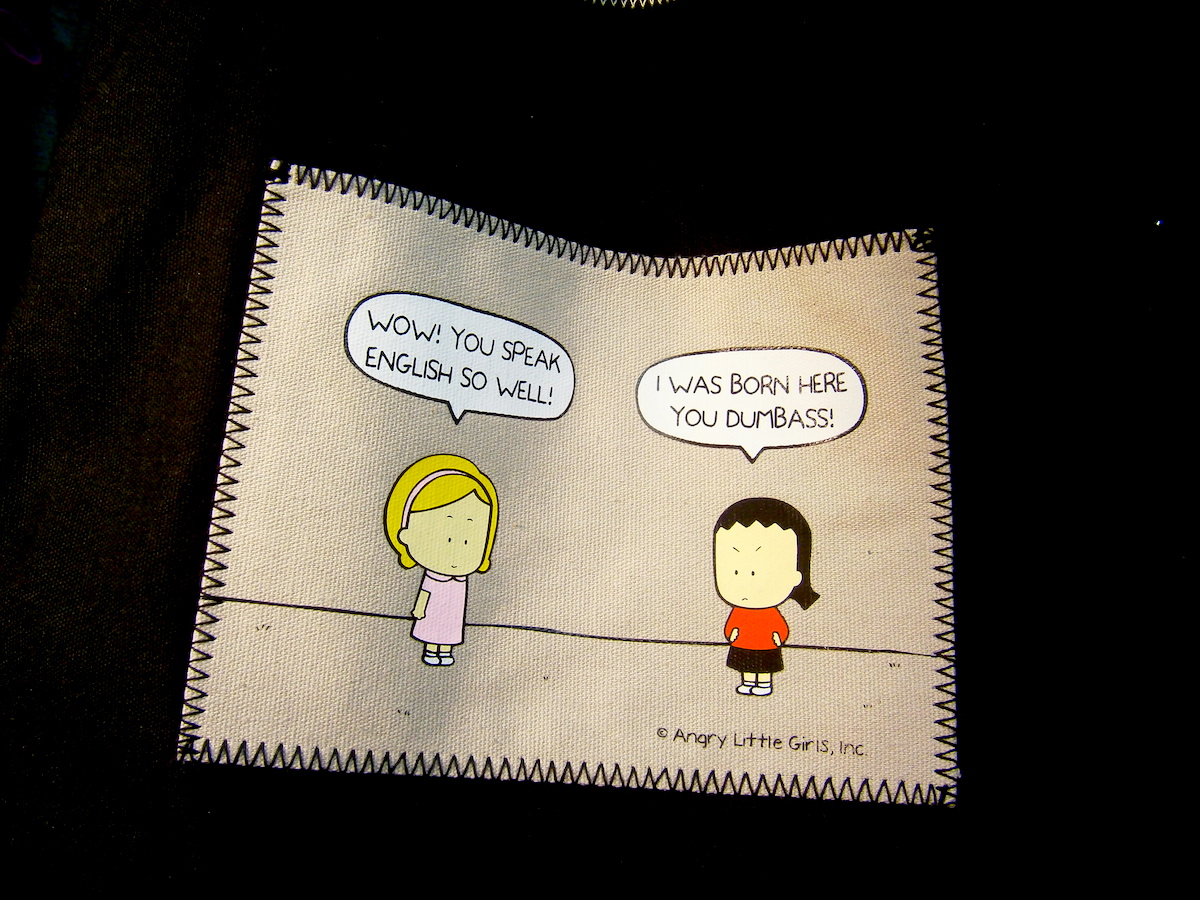
1. Where are you really from?
Here’s how this conversation usually goes down:
“Where are you from?
California.
“But like, where are you really from?“
Born and raised in the San Francisco Bay Area.
“Oh, I meant your parents.”
But that’s not what you asked.
“Sorry, I meant where are your parents from.”
San Francisco, too.
“Like… they were born there though?”
My dad was born in Japan and my mom was born in Hong Kong but her parents are from China, and at this point they’ve lived the majority of their lives in the U.S.
“Ooh I knew you were a little Japanese, I could definitely tell.”
No shit, maybe because my last name is Japanese?
Why I and so many Asian individuals hate this question, attitude, and entire dialogue:
A. Because it’s stupid.
B. Most importantly, it assumes I’m not a native U.S. citizen and not as American as the next person. It categorizes my family and me as foreigners despite how long the U.S. has been our home, which has been my entire life.
C. Most of the time, the question is asked with the purpose of trying to reduce me to a single group and/or to prove some weird point about different Asian stereotypes.
Nine times out of ten, the follow-up response to what my ethnic background is tends to be:
- “I knew you were [Asian ethnicity] because I can tell from your eyes”
- “Yeah, your face definitely looks [Asian ethnicity]”
- “I never would’ve guessed, usually [Asian ethnicity] people look different”
Imagine how bizarre it would be if people you just met constantly commented on your facial features and how it looks like what they think it should.
Like flat out the gate no asking about your job, your hobbies, restaurant recommendations… just, like, “I bet you’re [Asian ethnicity], right? I’m pretty good with guessing what you are based on what your eyes look like.”
2. Why can’t you speak Japanese/Chinese too?
The short answer: Well, I’m a goddamn American and we only speak one language. /s
Seriously though, we’ve all heard it before: You’re in America, speak English!
Damned if you do, damned if you don’t.
A. It’s complicated and there’s no winning
I often get made fun of for not being able to speak Chinese or Japanese fluently, especially by other expats when I was living in Japan (more on that later).
But then American society screams at immigrants and people with other cultures to speak English.
If we don’t absolutely project that we speak English fluently in every way, shape, or form, it’s leveraged against us.
Like the time in elementary school when I had to fill out a school-wide questionnaire and was asked, “What language(s) are spoken at home?”
I was about to write both English and Cantonese, but my mom stopped me and told me to only write down English.
This was because another parent had told her that their daughter was placed in a remedial English class after indicating that they used another language besides English at home, despite the fact that the kid was completely fluent in English.
B. Because my Chinese grandparents moved around a lot in their lifetime, they mix together 3-4 dialects in a single sentence
I grew up with them and this is what I learned, so you’ll have to excuse me if my version of Chinese is a little messed up.
I’m proud of our secret language that no one understands, but also my mixed Cantonese— along with all the wrong intonations and a strong American accent— sounds completely ridiculous to anyone else that it’s just easier for me to say I don’t speak any Chinese at all than have to explain all of this.
C. In a multicultural home, the default language is the one everyone has in common
Chinese and Japanese are two completely different languages.
Here’s a fun math problem I often give to people who ask me why I don’t speak Japanese and/or Chinese:
If my father speaks Japanese and English, and my mother speaks Chinese and English, what is the common language spoken in the household?
And that’s why I grew up speaking English with my parents.
A Yelp Review of Cities Visited Around the World as an Asian American Traveler
With all of *that* in mind, onto the worldwide Yelp review.
North America
San Francisco Bay Area, California, USA: ⭐️⭐️⭐️⭐️ (4.0)
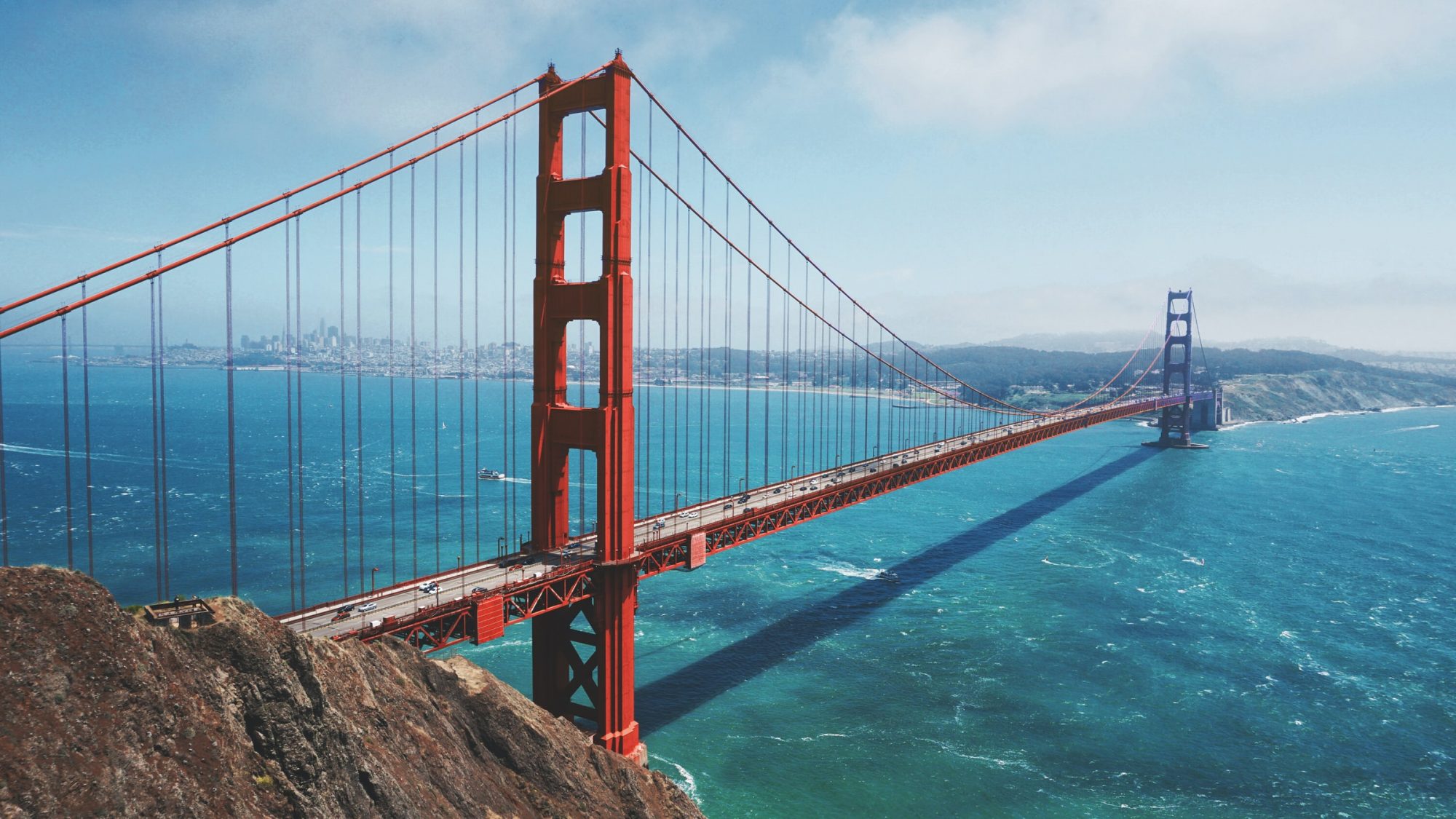
There couldn’t have been a better place for Asian me to be raised. (Thanks, mom and dad!)
I grew up thinking the entire country looked like the Bay in demographics.
The suburban city I grew up in was known as “Little Manila” or the “Pinoy Capital of the U.S.” because it had the highest concentration of Filipinos in the country.
It was a pretty diverse childhood and an amazing way to be raised.
Today, unfortunately, things have taken a turn for the worst.
Five stars when I was growing up but with all the recent anti-Asian incidents, it’s down to a low four.
Santa Barbara, California, USA: ⭐️ (1.8)
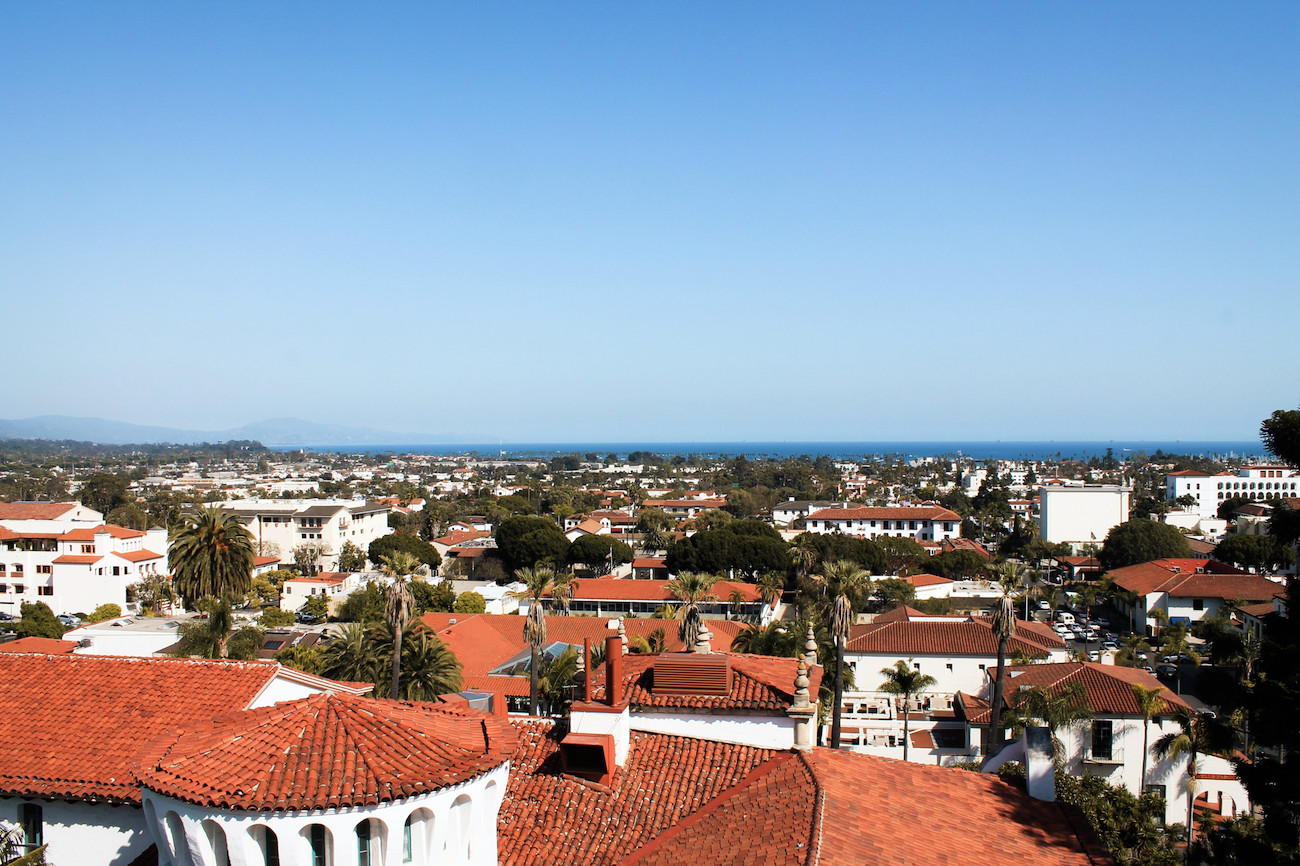
I lived in Santa Barbara for four years during university and while it was an amazing place to be a college kid, it was a terrible place to be Asian.
“What province are you from?”
I went to a nearby church on a Sunday where an older couple began chatting me up. After talking to me for at least several minutes, the man asked completely seriously: “So, what province are you from?”
I snarked, “the San Francisco province,” to which he replied, “I’ve never heard of it.”
The one with the “joke” about war atrocities
I’m unapologetically Japanese AND Chinese.
There are so many obstacles my parents overcame at a time when both of their countries hated the other.
And knowing what I know now about the wars and tragic history, I couldn’t be more amazed that my grandparents on both sides not only came to accept my parents’ marriage, but they also saw my brother and me as fully their own grandchildren despite us not being 100% Japanese or Chinese.
So if you ask me about my background, I’m always proud to say I’m both Japanese and Chinese.
However, apparently some see this as an invitation to make horribly insulting comments about my existence and family.
In my first year of college in Santa Barbara, I met a guy in my dorm building and naturally began talking. He mentioned that he was Jewish so we started discussing about our cultures.
After hearing about my background, he laughed and said, “So what do your grandparents talk about– how they raped each other during the war?”
I was speechless.
Not because I was insulted (that came later), but because as a sheltered 18-year-old, I had never experienced anyone with such little awareness or outright stupidity in my life.
Oh, how naive I was.
Thankfully, when I went back to my room and told my very outspoken roommate what just happened, she got so upset and offered to go back with me to find the guy and let him hear what she had to say.
Cringingly still under the influence of my Asian upbringing, I didn’t want to cause any trouble despite being so utterly disrespected, so I told my roommate not to worry about it.
I’ve fortunately learned to speak up for myself since, which— of course— doesn’t often go over well for those who just expect Asian women to be stereotypically submissive and silent. *Insert dramatic foreshadowing music*
Playa del Carmen, Mexico: ⭐️⭐️⭐️⭐️ (4.1)
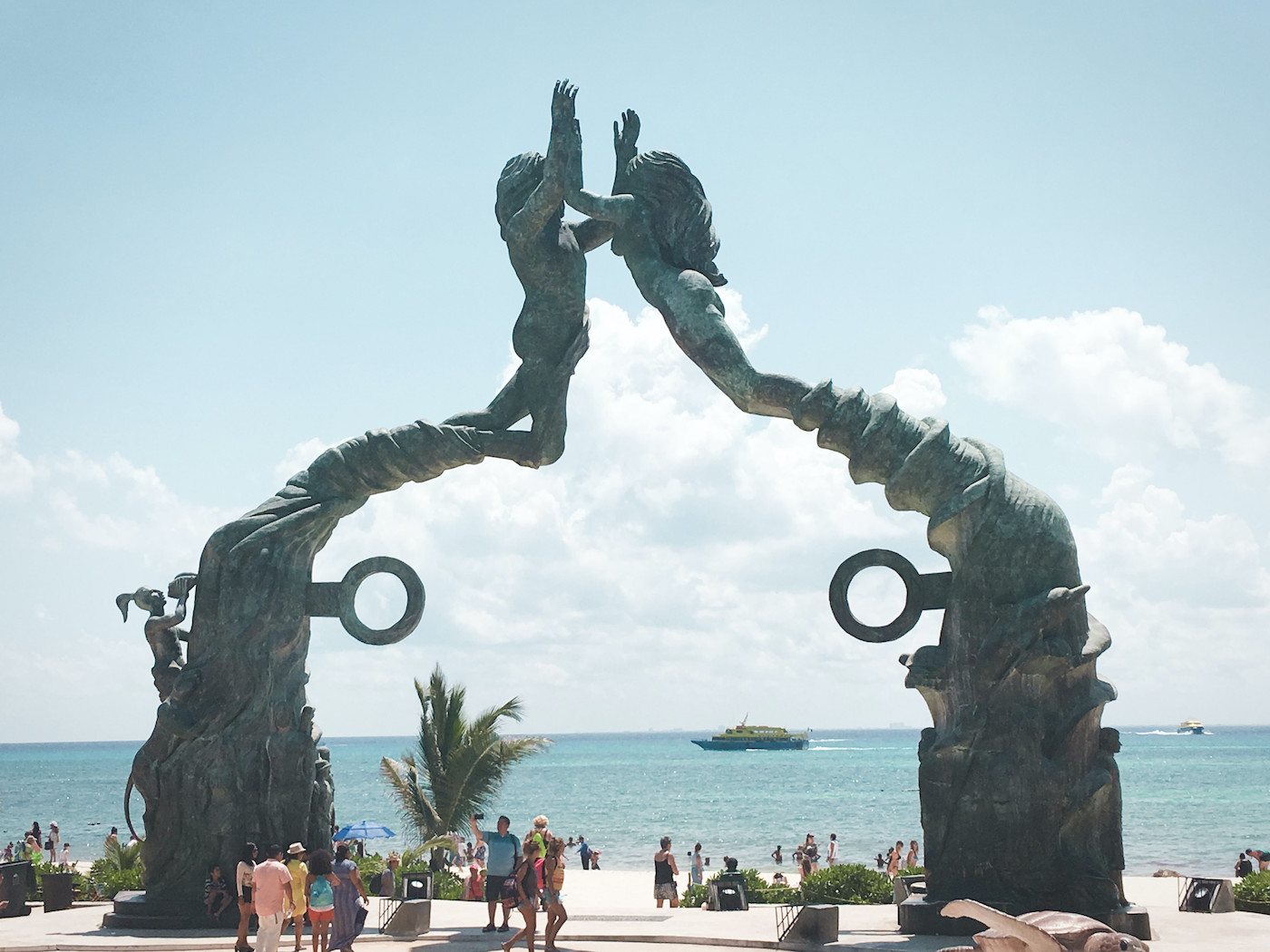
I’ve found Mexicans to be some of the warmest, most welcoming, and friendly groups of people I’ve crossed paths with, both at sea while working on ships and in Mexico itself.
Aside from a sparse few “ni haos” I get in the main tourist section, most of the time I’m left unbothered.
It also surprises me how tolerant locals are of my terrible Spanish.
Whenever I’ve struggled to comprehend questions or put together sentences at stores, in taxis, and at restaurants, the locals are always so patient and willing to work with whatever level of Spanish I’m able to bring to the table.
And whether I end up using Spanish or English, I’m not given attitude like immigrants often experience in the States.
Instead, the greeter at the local grocery store throws me softball questions in Spanish that are easy for me to answer and leaves me with a cheery “Bienvenidos a Playa!” (Welcome to Playa del Carmen!)
In nearly every taxi I’ve taken by myself, the driver spoke slowly to me after realizing my Spanish comprehension level, and never once did they cut me off as I was talking even though it takes me what I can only imagine is an excruciating amount of time to put a sentence together.
No yelling, no telling me that this is Mexico and I should speak Spanish like everyone else. Nada.
Cruise Ships: ⭐️⭐️ (2.3)

Make no mistake, most of my fondest memories from my travels across every continent are from working on cruise ships.
I absolutely love the lifestyle and even the work, and I can’t wait the industry is back up and running.
However, in all honesty, it’s an awful place to be both Asian and American.
Guest Treatment
Despite the utterly baffling and crazy guests we come across on ships, most of the time they’re more likely to assume I’m American (thankfully) as opposed to crew members.
When they don’t however, even though my name tag clearly states I’m from the U.S., the most frequent comment I get is that they’re so surprised that my English is so good.
Annoying, but I can deal with it.
Crew Treatment
In a nutshell: it sucks.
At least once a day, a crew member I don’t know personally will say “ni hao” to me, which I guess they’re trying to be friendly, but what if I was just Japanese or Korean or literally any other Asian besides Chinese.
Statistically, I guess the odds are in their favor, but I mean– wrong language for me and super annoying.
Unfortunately, on ships, stereotyping people based on their nationality is a way of life: American crew are loud and obnoxious, Chinese crew have the worst English skills and are the quietest, etc.
Whenever we see what country a new team member is coming from, we automatically make assumptions about their work ethic, language skills, and personality.
I’ve been guilting of doing this as well.
Sadly, I’ve seen so many instances of higher ranked crew members take advantage of Chinese crew members whose English may not be the best.
Knowing they don’t have the vocabulary to defend themselves, and also that they’re raised not to talk back to those in higher positions, I’ve seen so many Chinese crew get treated terribly, yelled at, and completely disrespected by other crew members.
And sometimes those assumptions are placed on me as well.
The one with the passport
Like the time we were docked in New York, which was a port with limited shore leave.
This meant only certain crew members were allowed to get off the ship.
If you were a crew member from blacklisted countries like Brazil or China with only a few contracts completed, you weren’t allowed off in these ports because you were flagged as a flight risk due to past instances of crew from your country running away in these ports.
Me being American, all I needed was to collect my passport from the HR center and I was free to go ashore.
But when I went to get my passport, the HR crew barely gave me a second to ask, cutting me off mid-sentence after looking at me, “Chinese crew have no shore leave.”
“I know,” I said, “But I need my passport because I’m not Chinese crew.”
“You can’t have your passport and you can’t get off,” they said.
Getting irritated, I did the most American thing I could: lose my shit.
“I don’t know what your problem is, but I’m an American citizen with an American passport and since we’re docked in America now I’d like to get off the ship,” I said loudly.
All that was missing was an “I’d like to speak with your manager.”
I hate to say acting like the worst stereotype of an American worked, but it did because they finally realized I might actually be American and got my passport for me.
“She needs to go back were she came from”
Another time, a crew member from the security team told me to smile while standing in line with guests to go back on the ship.
I gave him a “Nah,” to which he said, “Excuse me?”
I mouthed off, “Don’t tell me to smile.”
He then proceeded to go on a rant for the guests to hear, saying I was a bad example of a crew member and I should do as I’m told.
I laughed, saying I was off duty, off the ship, and not in uniform. If he hadn’t made a scene, the guests wouldn’t even have known I was a crew member.
As the line started moving, I heard him address the guests behind me, “Can you believe this girl? She thinks she’s in Canada or something where she can say whatever. She needs to go back where she came from.”
For the record, we were a Bahamian flagged U.S. ship docked in Sweden.
If anyone was going to tell me to go anywhere, I’d only allow it from a Swede.
In any case, I did go back from where I came from– onto the ship, straight to report him to the Chief Security Officer in addition to filing a very descriptive harassment complaint with HR.
He never looked me in the eyes anytime he saw me after that.
Caribbean
I’ve been fortunate enough to visit a dozen or so islands in the Caribbean, and I’d give the area a solid 3.5 stars.
Besides in Cuba, never have I been mocked for being Asian or had “ni hao” yelled at me, which is always refreshing.
Havana, Cuba: ⭐️⭐️ (2.5)
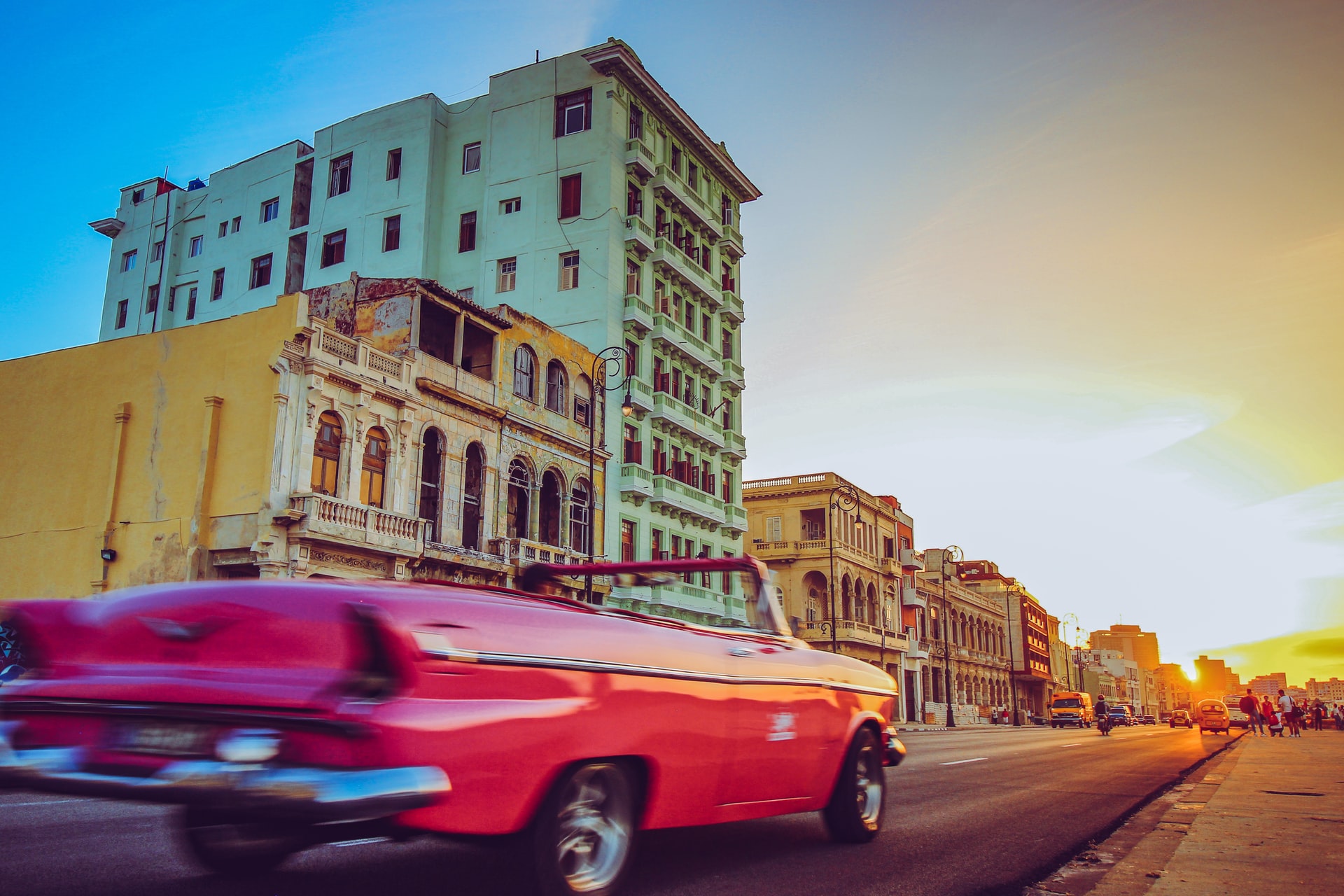
Just to be clear, I absolutely loved my trip to Cuba.
The people I actually interacted with— hosts, restaurant staff, and taxi drivers— were super friendly and welcoming.
The problem was with random locals on the streets.
Keep in mind I was traveling alone with my best friend who also happens to be just as obviously Asian-looking as me, so I’m guessing we were just easy targets.
But we couldn’t walk more than 10 minutes without having some man yell “china” (pronounced chee-na) at us.
They were literally just yelling “Chinese female!”
Like, we know that, no need to announce your observation.
I’d finally had enough one day and yelled back to a guy in very basic Spanish, “Pero somos de los estados unidos!” (But we’re from America!)
All of his friends ooh’ed and laughed at him while a few cheered my retort.
Not a terrible moment, but the culmination of constantly being heckled with “china, china, china” everywhere you go can be annoying after a week.
Africa
Fort Dauphin, Madagascar: ⭐️⭐️⭐️ (3.0)

There were obviously a lot of stares, but to be fair, I think any tourist here would get stared at.
Despite sticking out like a sore thumb and being constantly followed by women and young children who were either looking for money or trying to sell us small trinkets, I never felt unsafe.
To be honest, the only weird interaction I encountered was when my friends and I stopped by a small restaurant for dinner where we saw the only other tourists in town: two large, middle-aged men dressed in full American tourist attire.
You know the uniform: dad shoes, calve-length socks, and a generic logo screen-printed onto a cheap Hanes t-shirt tucked into ill-fitting khaki shorts.
They glared at us as they sat outside the eatery we were about to enter and snarked, “So you’re the reason everything in this town doubled in price.”
Right, from $0.50 to $1? The audacity.
The lady working inside the restaurant, however, welcomed us in as soon as she saw us.
After eating, we asked the woman about the one club we had passed by earlier and she told us it was open, but wouldn’t recommend that we walk there as the sun had already set and she didn’t think it’d be safe for us.
Since it was only about a 5-minute walk away, my two friends and I decided to just risk it as we were going together.
We didn’t encounter any issues along the way.
Not only did we get there safely, but we had such a fun night dancing with the locals despite not speaking the same language.
One minute we’re all dancing the YMCA and the next we’re singing along to Tupac.
At the end of the night, one of the locals we befriended insisted on calling a cab for us to make sure we got back to our little bungalow safely.
Cape Town, South Africa: ⭐️⭐️⭐️ (3.8)

As with most other international cities, I didn’t feel like I stuck out that much in Cape Town.
The main area downtown was busy with so many different tourists and accents while speaking English that I honestly felt like I was back in San Francisco.
My friends and I spent the evening at a gay club in the LGBTQ-friendly neighborhood and had a blast.
Although I don’t recall seeing very many other Asians around, it doesn’t feel as daunting when everyone is so openly inclusive of others.
Antarctica
McMurdo Station and South Pole Station: ⭐️⭐️⭐️ (3.3)

For those who aren’t familiar with my story, I lived and worked in Antarctica at American research stations McMurdo and the South Pole.
Overall, I’d say being a woman on the ice (Antarctica) is harder than any other factor.
Going down I knew the men to women ratio was around 70 to 30, and I knew there would be even fewer BIPOC.
All of this turned out to be accurate.
The first time I went down, it was midseason when pretty much everyone was familiar with who was around, so it was pretty easy to spot me as the newbie.
I’ll never forget all the stares I got when I first walked into the cafeteria.
Just a sea of white men watching my every move.
Looking out and not seeing anyone who looked like me was so jarring.
That’s why when I found one of the few other Asian women down there, I insisted on being her best friend.
Obviously, there’s a lot to be said of the lack of diversity down there.
I will say though that food-wise, the chefs, cooks, and kitchen staff do their best to incorporate different flavors into the restricted menu.
Although I absolutely hated the Asian-themed meal nights, or what I called the Walmart of Panda Expresses, I didn’t fault anyone for it.
After all, I don’t think anyone’s really in a place to be demanding about food in the middle of nowhere, especially when we’re able to have lobster for Christmas dinner while the early explorers were barely surviving off penguins and seals.
What did bother me were the insensitive comments and unfiltered thoughts some individuals just casually spat out.
I definitely didn’t get the worst of it, a realization I came to understand when comparing stories with other BIPOC down there, but coupled with the stress of isolation, small things really got to me.
The one at the South Pole
While working at the South Pole Station during my second Antarctic season, I saw a couple of guys wearing Oakland A’s attire as they dropped off their dishes to me in the dishpit.
I attempted to make friendly small talk by asking if they were also from the Bay Area, but one guy just looked puzzled.
“You know, Oakland? Since you’re wearing an A’s shirt?” I clarified.
“Oh yeah,” he said. “Where are you from?”
Now since I thought we were talking about the Bay, I obviously didn’t take this to be the racist version of this question.
“Just outside of San Francisco,” I said.
He still had a confused look on his face and then asked what I was dreading but quickly figured would happen inevitably:
“But where are you really from?”
Pause for growing anger.
“Like…specifically?” I said, trying to give him a moment to save face to no avail.
I gave him the specific city I grew up in and repeated, “It’s just outside of San Francisco.”
“But like, are you American American?” he finally asked.
It took everything in me to answer civilly, so I stated flatly, “Well I was born in San Francisco, and last I checked that was in the U.S., so…”
I’m not sure if he was still confused or embarrassed, but he just replied with a semi-sarcastic “Okaaay…” and wander off.
Out of all the indignant conversations I’ve been put through, this one somehow got the biggest reaction out of me and took me by surprise.
After he left, the more I thought about it, the angrier I got.
I ended up throwing a sheet pan across the dishpit into the wall and then skipped dinner in order to take my break in my room where I then proceeded to cry my eyes out uncontrollably.
South America
Lima, Peru: ⭐️⭐️⭐️⭐️ (4.0)
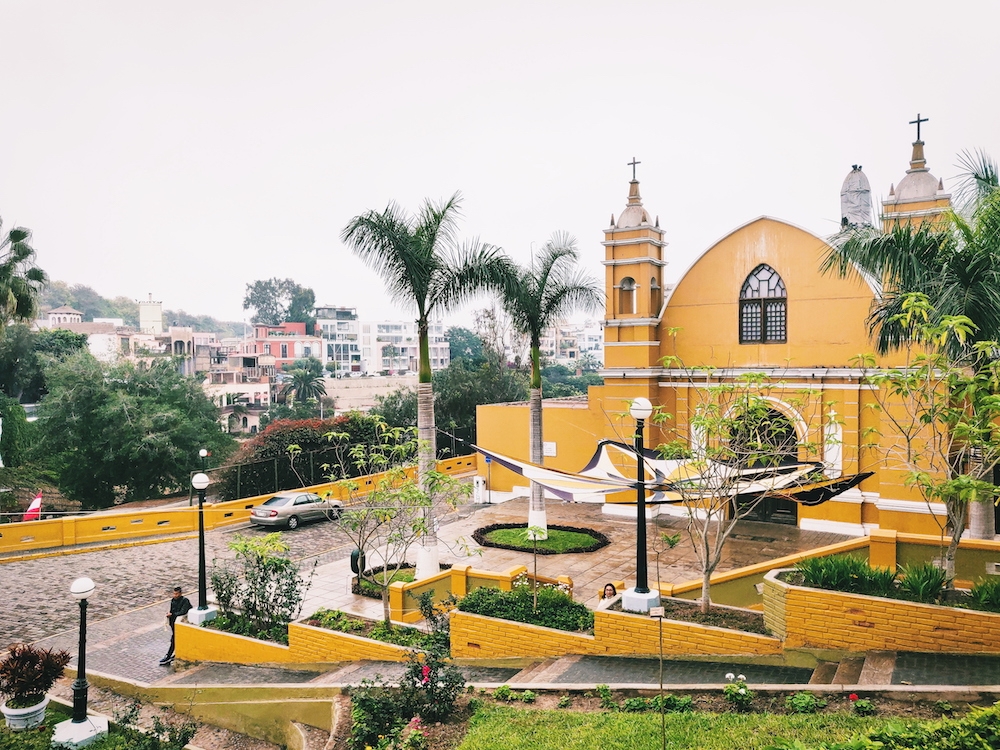
Peru is home to one million Chinese descendants.
It’s not hard to see the influence the Asian culture has had on a large city such as Lima, where I immediately noticed no fewer than 2-3 Chinese restaurants on every block.
And these aren’t the white-washed, generic “Golden Dragon” fusion restaurants with the name written out in that fake Asian calligraphy font (you know the one).
These are restaurants that look like they’ve been well-loved and some with just a few tables and chairs inside. AKA: legit.
I stayed with a friend’s family when I went to Lima and one of the first foods they had me try was chifa, a Peruvian cuisine that combines traditional Chinese dishes and techniques with Peruvian ingredients.
10/10 absolutely delicious.
Throughout my time in Lima, I saw many faces that looked similar to mine plus some.
Whenever I’m in a place where so many people look different, that’s definitely where I feel the most comfortable.
Rio de Janeiro, Brazil: ⭐️⭐️⭐️⭐️ (3.9)
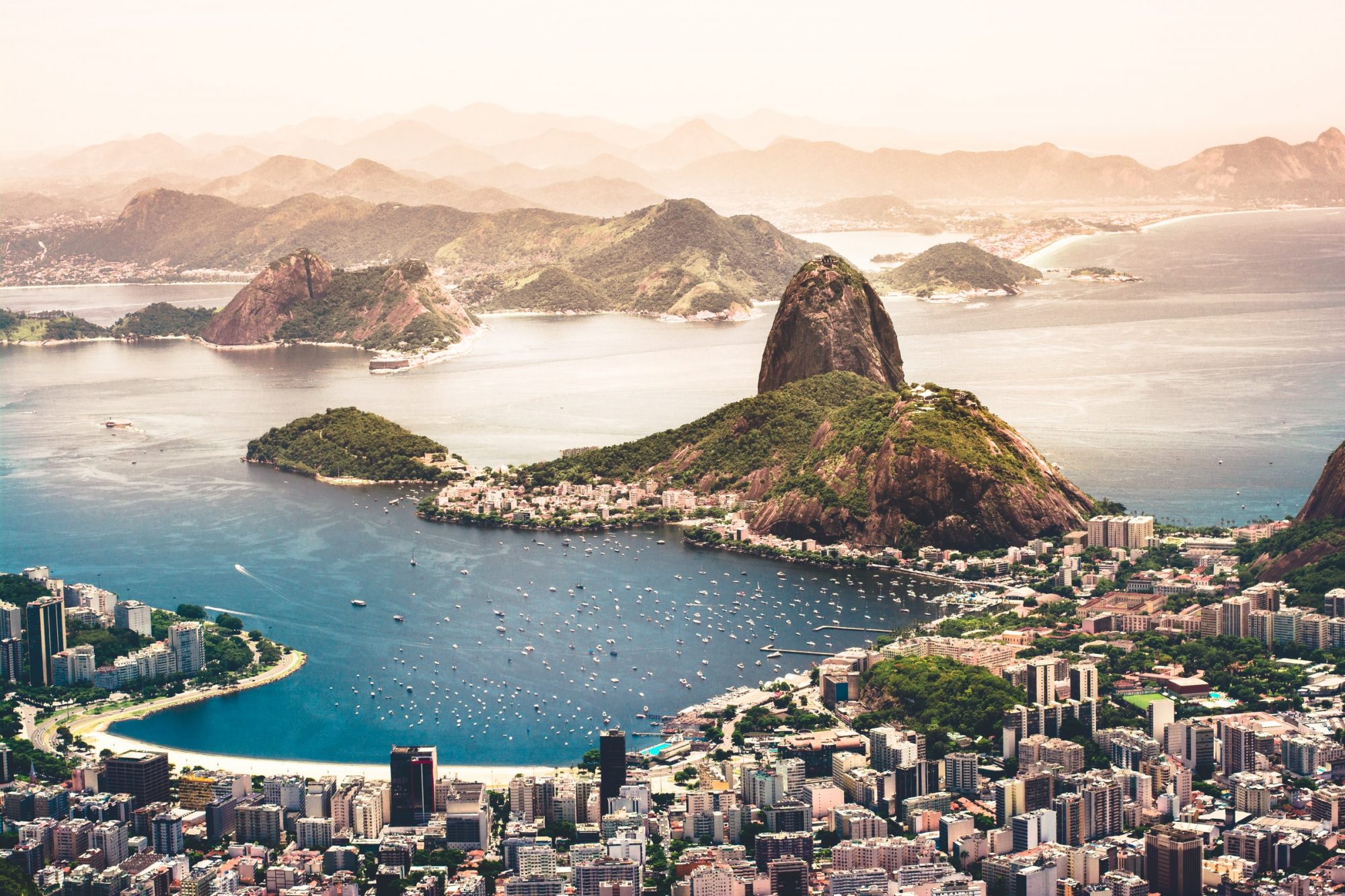
During my contract as an English teacher with Peace Boat, we had a few glorious (and free!) nights in Rio during Carnival, one of the biggest international parties in the world.
My friends and I headed to a restaurant before our big first night out and out of nowhere this guy outside runs up to the window next to me, starts banging on the glass, and then pulls his eyes to the side.
I was livid.
I’ll admit, my reaction was not my finest moment.
I got up, slamming my hands on the glass back at him and yelling at him to piss off.
My friends tried to calm me, saying he was probably just drunk and to leave him be.
But he didn’t go away.
He came into the restaurant and headed straight for our table.
Terrified like a ratty chihuahua and immediately regretting not being the quiet Asian girl I was raised to be, I braced for the worst.
Well, it turns out he was part Japanese and was just so excited to see another Asian— me— and wanted to talk.
Little did I know, Brazil has the highest population of Japanese descendants living outside of Japan, 1.5 million to be exact.
And while the whole pulling your eyes to the side is extremely offensive in my culture, it’s more accepted in others, AKA the one I was in at the time.
Definitely learned a few lessons that day.
As for the rest of my time in Rio, it was the greatest party I’d ever been to in my life: three non-stop nights of hot men, beautiful women, super friendly people, and amazing live music.
I danced with so many strangers, some of them who I couldn’t tell what language they were speaking. But it didn’t matter.
Who could’ve guessed that good music and a great party are all the ingredients necessary to bring cultures together?
Oh, that and a lot of booze. A lot.
I would give Rio a full four stars, but there’s a small deduction for getting me tear gassed.
Europe
St. Petersburg, Russia: ⭐️⭐️⭐️⭐️ (4.0)
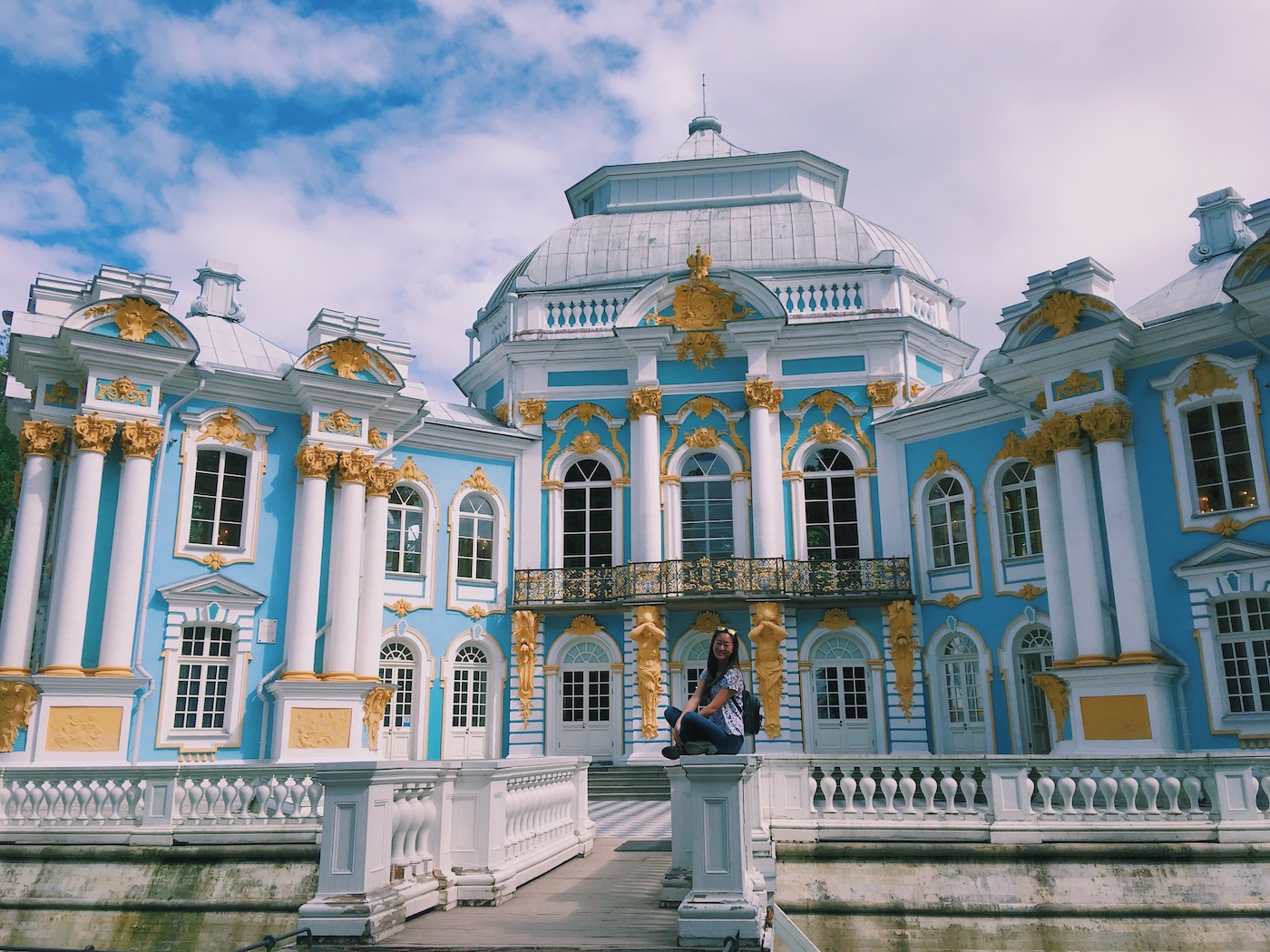
I will never stop talking about how much I absolutely loved my time in St. Petersburg.
For an entire summer, I got to spend three days each week docked in SPB— a rare treat for cruisers and crew alike.
The cherry on top of it all was that this was during the 2018 FIFA World Cup.
I do think it’s possible that an international event such as this could have skewed my impression of the city, making it more friendly and diverse than it normally might be much like my experience in Rio.
Either way, I felt just as safe in St. Petersburg as many of the other European countries I visited that summer; certainly more than I have felt just wandering down a street in San Francisco.
There was no staring, no weird comments, and no catcalls announcing my Asian presence (at least none that I could understand).
My friends and family had joked that it was a good thing I don’t look like the typical American tourist “because you never know what’s going to happen to Americans in Russia,” but I honestly found the city to be quite friendly and welcoming. (Again, this is just my observation of one Russian city.)
Going through immigration, the officers couldn’t have cared less that my passport was American. They looked just as bored and unenthused as every other immigration officer I’ve ever come across in any country.
To me, that’s the best case scenario.
Helsinki, Finland: ⭐️⭐️⭐️⭐️ (4.5)
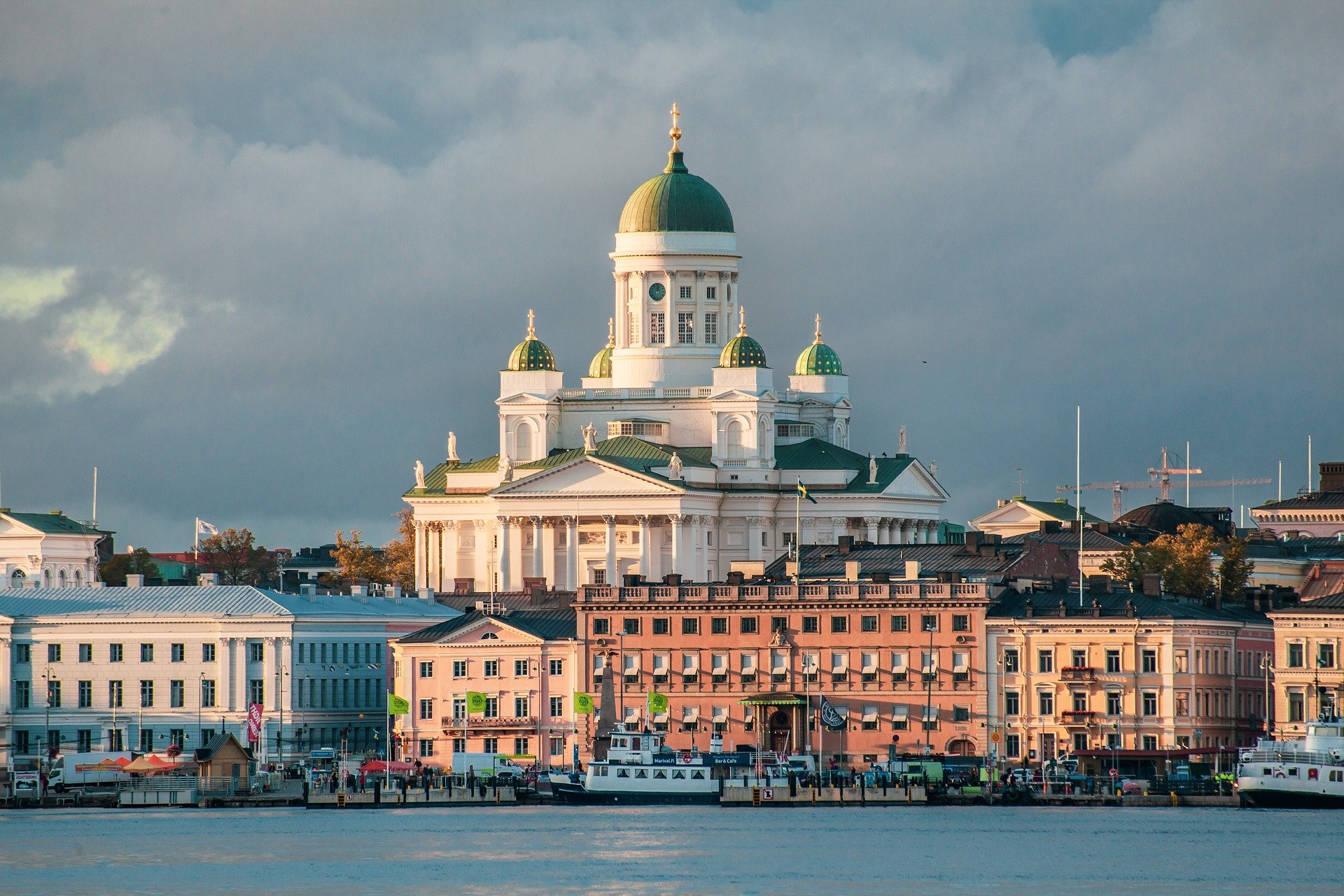
Most of my experience all over Europe was uneventful in every positive sense possible.
I know it’s ridiculous to group together so many countries, but my time in the Baltic, Scandinavia, and Nordic regions was honestly so amazing and enjoyable.
I’m singling out Helsinki just for the sushi.
I have no idea why, but this city has multiple— yes, more than one— sushi bars with all-you-can-eat buffets of sushi rolls and sashimi.
To be fair, it’s not the most amazing sushi I’ve ever eaten in my life. Obviously.
But 1) It’s not like you expect that from a place like Finland anyway; and 2) it was decent, bottomless sushi for around 20 euros.
At the time, I was working on cruise ships where the crew food wasn’t always the best.
So whenever Helsinki was on the week’s itinerary, the sushi was all I looked forward to.
Fun fact: Both Trump and Putin once ruined my day and prevented me from getting my beloved sushi. True story.
In all seriousness though, during my time in Helsinki (as well as the aforementioned surrounding regions) I was never stared at or spoken to condescendingly.
I was just another person walking on the sidewalk.
In addition to how safe I felt just wandering around on my own, I honestly felt like I was in some sort of utopia that most people dream of— a place where you can just be without fear of being treated differently because of who you are or what you look like.
Asia
Japan: ⭐️⭐️⭐️⭐️⭐️ (5.0 to visit, 3.5 to live there)
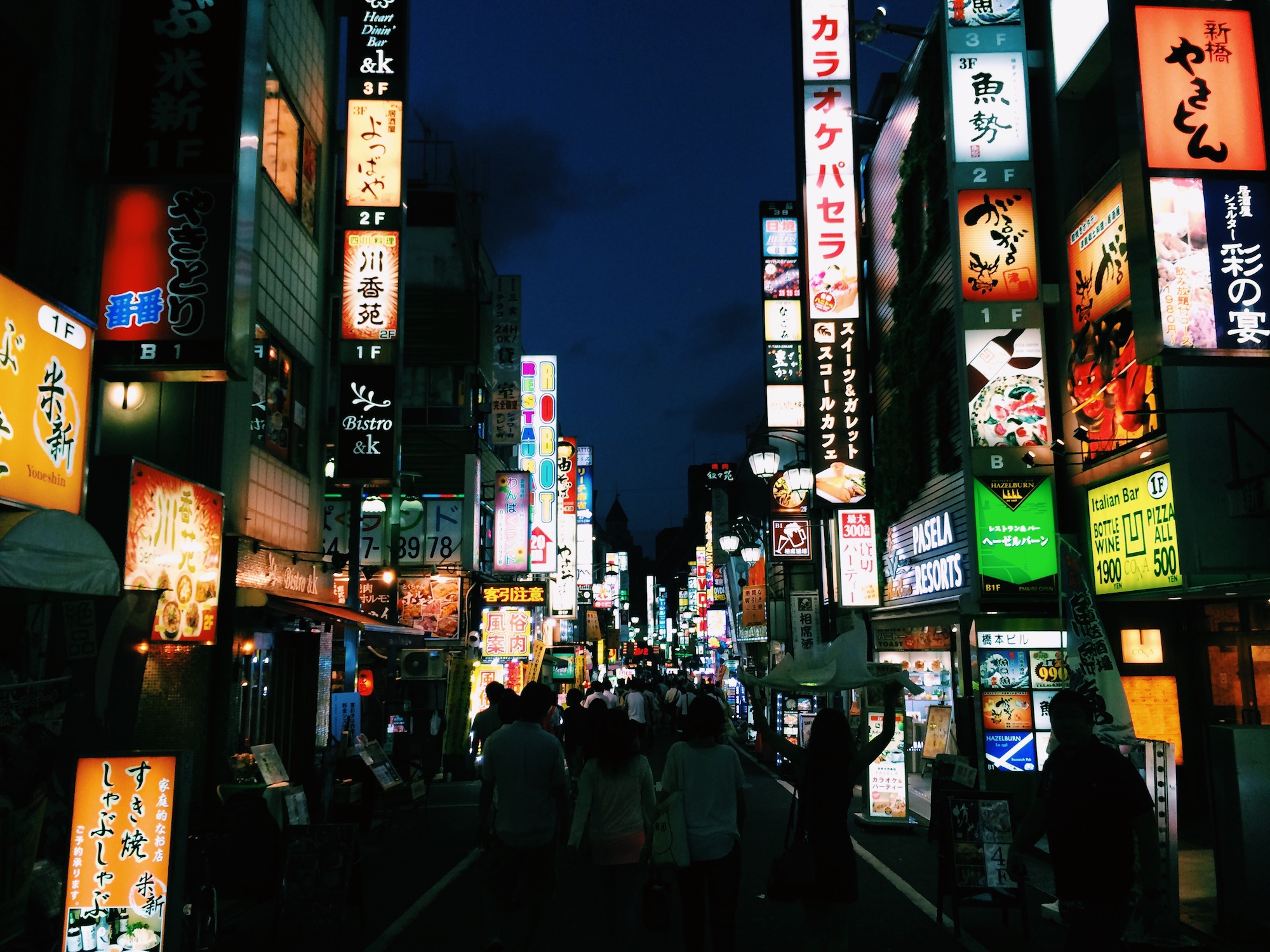
I lived in Nagoya for two years immediately following university working as an English teacher and it was such a life-changing experience for me in every aspect, both professionally and personally.
For the first time in my life, I looked as if I was from the country I’d been told to go back to.
I was finally able to blend in– until I opened my mouth.
I knew it would be a difficult adjustment moving to a collectivist culture after growing up in the Western world where you’re encouraged to be an individual.
However, in addition to the whole appearance of looking Japanese but not understanding the language, I severely underestimated the mental toll two years of living in Japan would have on me.
The one with the double-standard
One of the hardest truths to reckon with was that I would never be treated the same as white expats, especially the men.
No matter how much I tried to learn Japanese, it was never seen as a positive thing by locals who didn’t know me.
Because of how I looked, it just seemed like I should know how to put a sentence together in Japanese.
But as soon as one of these guys opened their mouths and were able to utter a simple “thank you” or “Can I have another beer?” in Japanese, it was like they’d just climbed Mt. Everest.
They got praise and applause while I just got weird looks or even laughed at.
To rub it in, some of these guys I obviously no longer consider friends would literally point out the irony of what just happened while laughing at how funny it was because I’m the Japanese one.
Yeah, super hilarious.
The perks of blending in
But there is an upside to looking like the locals in Japan: I never got profiled by the police.
One afternoon I was sitting in an outdoor plaza when I saw the cops show up to do their rounds.
They headed straight for a group of Indonesian boys and immediately asked to see their papers.
The thing is, those boys spoke what seemed to me like perfect Japanese (but what do I know).
If the police wanted to do a foreigner check, I was the most foreign person sitting in that plaza. But because of my face, the police never came over to talk to me once.
The downside to blending in
Even when I would try to explain that no, I’m not dumb, I just don’t speak Japanese because I’m American, sometimes people still wouldn’t believe me.
There’s no better example of this than when I got hit by a car during my first few months abroad.
I’d already told the EMT I couldn’t answer his questions, so he shouted them again as if repeating the questions louder would suddenly help me understand a different language.
In the hospital they just kept bringing more and more people into the room to look at me like some weird science experiment as I laid on the table.
Even though I said in Japanese that I couldn’t understand it and even began speaking in English too out of frustration and to prove my point, they all concluded that I may have suffered severe brain damage instead.
They ended up running a bunch of head scans to check what my deal was, which I didn’t fight because I had no idea how injured I was.
Overall, I absolutely loved my time in Japan but those were some of the hardest two years of my life.
Maybe things would have been different if I had better coping skills for the anxiety and weekly panic attacks I ended up developing due to the mental stress.
I think it’s a wonderful and extremely safe country to visit no matter your background or identity, but I don’t think I’ll ever live there long-term again.
Hong Kong: ⭐️⭐️⭐️⭐️ (4.8)

I was only in Hong Kong for about a week but I think I ate my bodyweight in food.
It was so refreshing to see other Asian faces using English, just like me. Finally!
If I was greeted in Cantonese at a restaurant, I did my best to continue in Cantonese as well.
But one time it didn’t go over so well, and the look of pure disgust on the server’s face upon hearing my very confusing-sounding Cantonese was priceless.
After switching to English, they asked that I do the same.
Lesson learned, I thought.
So the next time I went to a restaurant, I only spoke English.
But then about 15 minutes later I overheard the staff complaining about me and my friend in Cantonese, saying that we were taking too long to eat.
I laughed and told my friend we should hurry up, and as we left I apologized in my terrible Cantonese which left them with somewhat puzzled faces.
Despite these moments of cultural confusion, I have mostly fond memories of my time in Hong Kong.
And even the mishaps are seared in my mind as more of funny stories rather than bitter memories like I experienced in Japan.
I’m pretty certain this is because I was only in Hong Kong for a week.
If I lived there for a year or two, I think I may have come to the same conclusions as my time in Japan.
Oceania
Christchurch, New Zealand: ⭐️⭐️⭐️⭐️⭐️ (5.0)

If I ever settle down, New Zealand is on the top of my list for prospective places to move to.
I was so fortunate to have a week in Christchurch while in transit to Antarctica.
As excited as I was to get down to the ice, every day that our flight was delayed, I was just so happy to have another 24 hours in such an amazing little city.
Besides everyone being so friendly and not having to worry much about safety, I was pleasantly surprised to see how diverse the city was.
Just hearing the range of accents as I walked down the street was so refreshing.
Additionally, the Asian population in Christchurch is increasingly growing, and the surrounding area reflects this with no shortage of Asian restaurants on every block.
Thai, Chinese, Japanese, Singaporean– I felt like a kid in a candy store picking out where to eat for every meal.





Side note, these restaurants serve way more than soup dishes, I’m just obsessed with soup.
Also, there are alpacas in New Zealand. Sign me up.
Final Thoughts
Despite my salty ramblings, I know how lucky, privileged, and fortunate I’ve been to have had the adventures I’ve had.
When going abroad, I’ve learned to be more forgiving and not offended when I get asked questions that might seem insensitive to me because I know there could be many factors in play such as cultural differences or language ability.
Also, for the majority of people who never leave their country or who have limited access to the internet, I’ve learned that I can’t expect them to look at me and automatically think “American.”
After making friends around the world and often getting asked if XYZ in America is like this TV show or movie, I’ve realized that so much of what people think America looks like or what life in the U.S. is like is shaped by what they see from Hollywood.
So if most of what they see are rich, preppy white kids on Gossip Girl, they might think that’s what life in New York is like and the type of people who live there. (This very real example brought to you from someone who asked me if all schools in NYC were like what’s portrayed in the show.)
It’s almost as if representation matters in the way perceptions around the world are formed or something. Weird.
But what does get to me is when my fellow Americans assume I’m not really American or make insensitive comments regarding my background.
It cuts deeper because it’s coming from my own people– people who I thought would know better.
In many of the anecdotes I shared where a “joke” was made at my expense, there were people around who said and did nothing.
I don’t expect anyone to jump to defend me like my former roommate, but a simple look of disgust or even an “Oh come on,” or “Seriously?” would’ve sufficed in letting me know I wasn’t alone while also sending a message to the person that they should probably rethink what they just said.
Silence only signals approval.
In any case, I’m so grateful for everything I’ve learned, even if it did come with some scrapes and bruises.
Despite all the terrible things that happen in this world, it’s still a very beautiful planet filled with some very amazing people and very delicious food.
I wouldn’t trade this existence for anything else.
Pin and Save
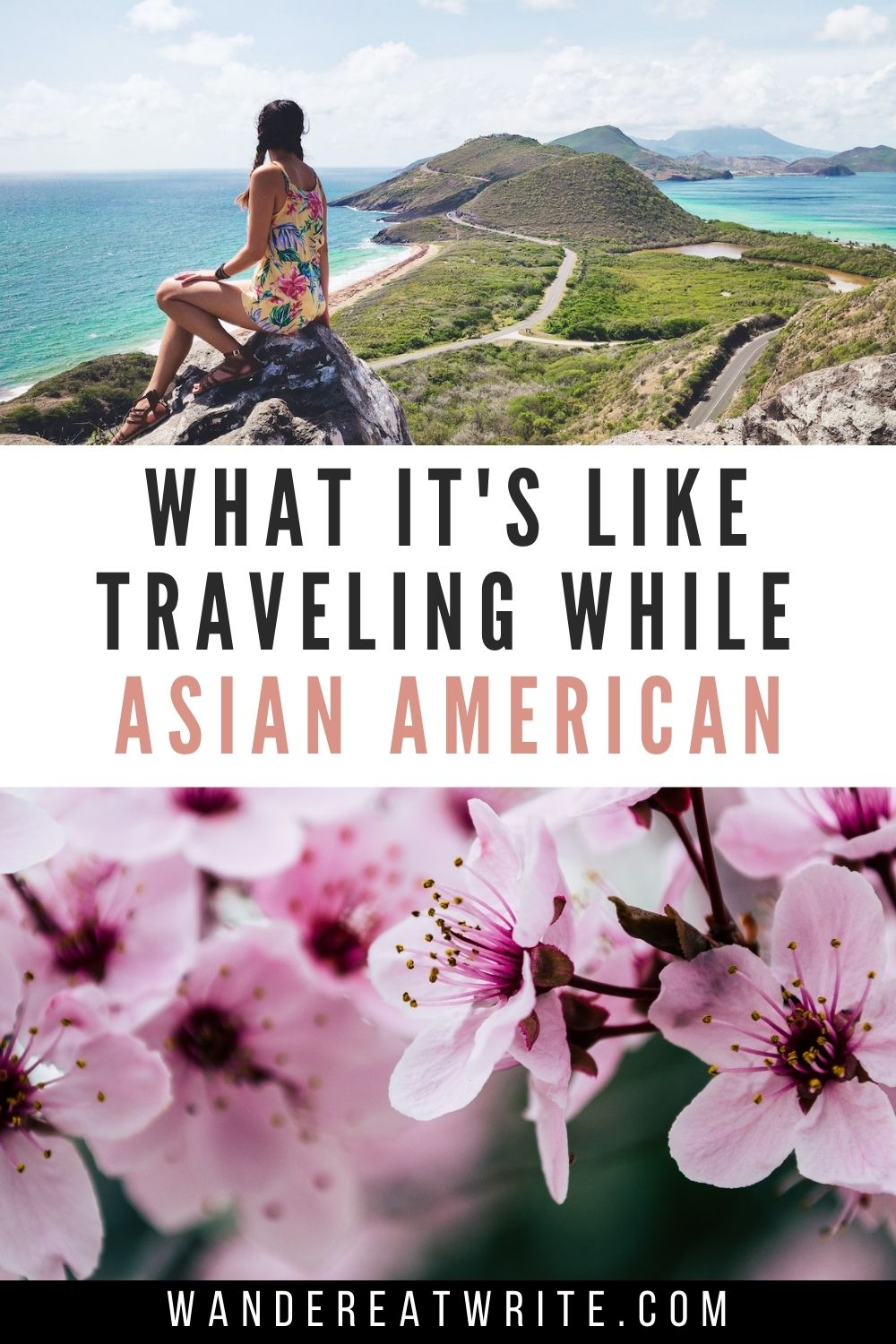
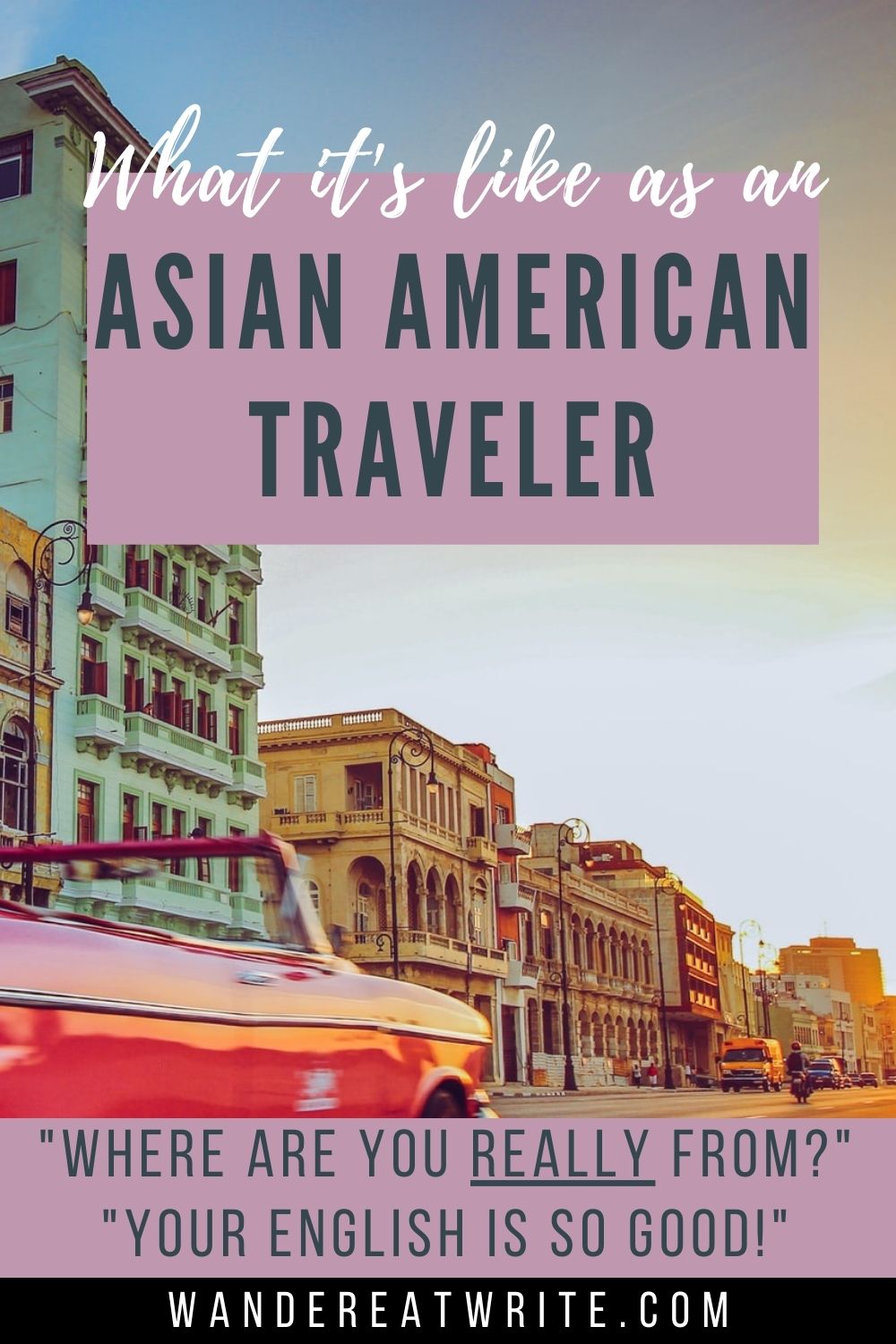
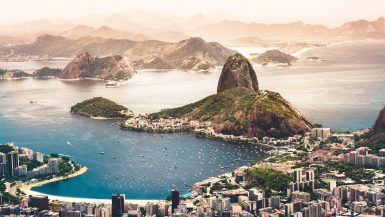
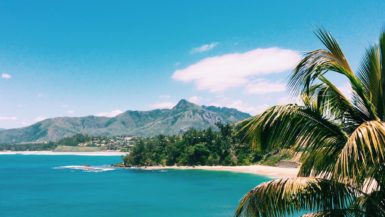
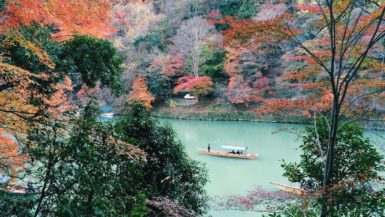
This was such a powerful piece. I think it is so important for people to learn from other experiences and for voices that are usually not amplified to be so. As a Black person, this also hit home in many ways as well. I hope one day we can all be seen as equal in the travel space.
Couldn’t agree more! When I first began traveling in the early 2010s, I couldn’t find very many travel influencers, writers, or bloggers online who looked like me or had similar experiences. Thankfully, there’s a bit more diversity now and I hope it continues to grow with more individuals of all backgrounds telling their stories.
Wow!!! As a nigerian-american, I totally get it when you get those “microaggressions” as you travel. When I was in Italy, someone told me that my English was so good??!! And I was like…im American! So obviously the Italians assumed that I was just another African immigrant. Also, I’m so sorry you got so many states while you were in Madagascar! I feel like this post has really encouraged me to write a post about my experiences being black abroad. One time, when I was in France, I had a group of Asian tourists stop me so that they could take pictures with me. They treated me like any other celebrity and it was really cool. Hahaha ❤
Asian tourists are crazy with their iPads lol. Definitely share your experiences, I’m sure so many others will be able to relate! More diversity in the travel community will also paint a more accurate picture of the highs and lows we face while abroad.
i was really relieved knowing that i am not the only one. im swiss-hong kong and experiences this like daily while travelling. thanks for sharing
This is such a deep and meaningful article, but as I kept reading all I kept thinking is that you kept going and doing what you love. I look to that for inspiration.
Aw thanks for reading and I’m glad I could inspire you! We all make sacrifices to chase our dreams– I’m sure lots of people can relate to that :)
I was enthralled with this post from beginning to end. It sounds like you have had some interesting travel experiences – some good, some bad – but I like how you laid it all out by continent and country. I lived in Northern China for 2 years and I remember an Asian American girl (also from San Francisco) arrived on the same day as me. She only spoke Cantonese and the locals wouldn’t accept that she didn’t speak Mandarin. Even when an expat who did speak Mandarin replied people kept directing all questions to her. I’m glad to see you had so many positive experiences, and also so grateful that you were able to share them all with us
Thanks for sharing! I bet that teacher and I could swap stories of similar experiences for days! I’m sure you also had your fair share of good and bad while teaching in China as well. 2 years abroad AND teaching is honestly no joke.
Thank you for this eye opening window into your travel experiences. It is a moving piece, especially because you write about it all so well. It is profound that you have had so many experiences that you can write an article of this length and depth. I appreciate your sense of humor and that none of it stopped you from continuing your incredible travels!
Thanks for taking the time to read my ramblings! Being fortunate enough to travel to so many amazing places has definitely taught me a lot, including how to turn lemons into lemonade ;)
Thank you for sharing. I enjoyed the article and appreciate you sharing your experiences. I have learned a lot from you.
Thanks for reading, Jim! :)
Ahhh this is an incredible article, very thought-provoking and interesting to learn about your experiences in different places. I teach many Asian students (who are born in England) and they have shared similar experiences with me. I am going to assign this for my class to read, as it really helps to understand travel experiences from different perspectives.
Wow, thank you! Surprisingly, I haven’t met too many Asians from England but it’d be interesting to hear their stories as I’m sure they encounter their own unique challenges that are different from the U.S.
oh man… so much cringe in here 🥴 …but then, you can also be so damn funny writing about it (re: I did the most American thing I could: lose my shit. 🤣) I want to both apologize/empathize with you, but also commend you for coming out the other side of idiocy as a complete badass with a 10/10 sense of humor, grace and perspective, and a knowledge of the world so few have.
Aw thanks, Shelley! Just gotta keep swimming and chasing those adventures no matter what. It helps to have fellow badass travelers encouraging me along the way too 😉
WOW! You are so inspiring. I love that through it you still see the beauty of the planet <3 Thank you so much for sharing your experiences.
Thanks for reading!
I loved this. Your writing is excellent, so authentic and with the perfect amount of humour! I am white British and live in Japan and can relate a lot to some of the things you’ve talked about. (My kids have a Japanese father). They are between worlds for sure, seen as “foreign” in both Japan and England.
On the other hand, they’ll have such a rich upbringing, and honestly, growing up with multiple cultures is the best!
I really enjoyed your salty ramblings (that is such a good way to put it!)
But daaamn. So many of these stories make me cringe, and the others make my blood boil! I really hope as the world gets more global people will get better at just accepting people… we have such a long way to go. :(
I lived in Japan, and had several Asian friends that did not speak Japanese – we often had those weird moments when I’d speak Japanese, but waiters would refuse to speak/look at me. They’d have to look to my Asian mates, even though they couldn’t speak Japanese. I don’t miss that madness. I definitely did sometimes get ridiculous kudos for saying the most basic sentences though (like you mentioned the white dudes get.)
p.s. I always wanted to work as a translator on the peace boat (in the end I fell in love/got married so didn’t apply…) so I am always excited to find someone who worked on it. :)
Oh man, I had the same experience with a couple white friends who spoke fluent Japanese but of course, the waiters would look at me and I was just clueless. Just uncomfortable for everyone lol.
Regarding Peace Boat, never say never! There’s such a wide range of teachers and translators, it’s definitely something you (and your partner!) can still do in the future if you wanted :)
Sending you lots of love. I’m Chinese and was born and raised here (although my parents moved here from China/HK, then to Canada, then to the U.S.) I can absolutely relate to the things you wrote (I’m in the bay area too, so up until recently, I would’ve rated SF as pretty high up there.) It was really interesting reading about your experiences in all these different countries — I’m sorry that there have been so many insensitive/rude people out there (good on you for standing up for yourself though!). I’m looking forward to following with you virtually on your adventures and I hope you find a great place to move to! (NZ has been on my travel bucket list for ages–I’d love to get to visit someday!!)
Bay Area!🌉 Yeah, it’s just so sad what’s gone on the last 12+ months. Happy to have you along for my adventures, hope you and your loved ones are staying safe ❤️✌️
I really enjoyed reading about your experiences travelling around the world, even though you’ve come across a lot of nasty and ignorant people. Thank you so much for sharing everything!
Thanks for sharing your experiences as an Asian American traveller. This is such a powerful and moving piece. I love your honest breakdown of different countries and your experiences. Thank you for sharing them with us!
Oh man…I’m a Singaporean stuck in Singapore right now and your blog has left me with a seeeeriousss case of wanderlust.
WHY CAN’T YOU SPEAK JAPANESE/CHINESE TOO?
The short answer: Well, I’m a goddamn American and we only speak one language.
Had a big laugh on this one. I think you’re a really cool person. Thanks for sharing all these personal insights with us random internet dudes.
From Germany
Thanks for listening to my ramblings and laughing along with me!